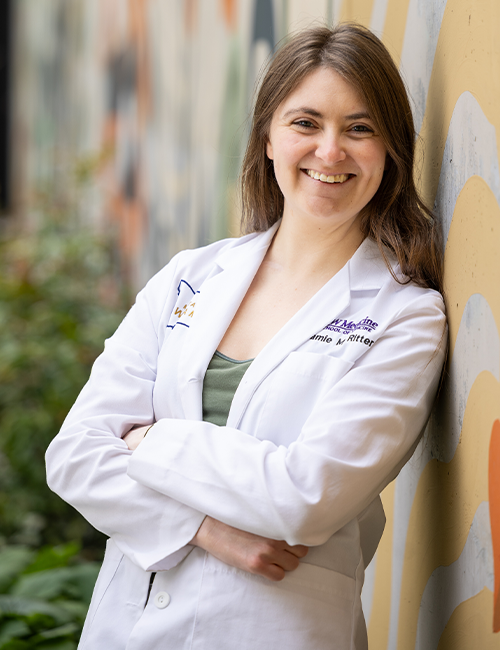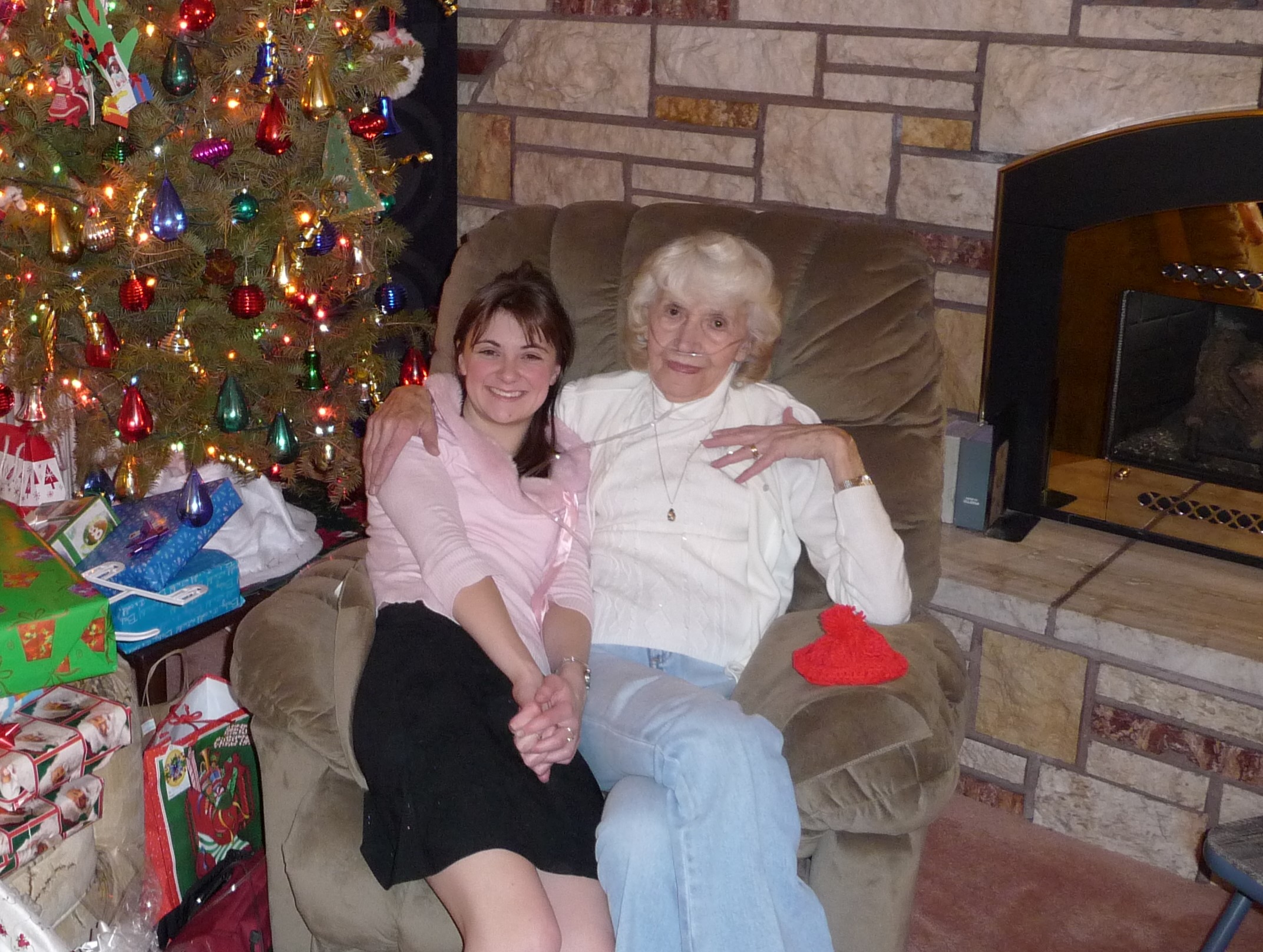
Jamie Ritter, MD ’26
Growing up in Butte, Montana, I was raised in a community that’s been instrumental in guiding my education and supporting my dreams of becoming a doctor. As a first-generation college student, I feel privileged to have the unwavering support that many of my peers did not have.
The population of Butte is 35,000, but everyone seems to know each other. The doctors are not only providing care but are also active in the community. The orthopedic surgeon, who was a great mentor, was at every football game as the team doctor. The local ENT attended the same cycling classes or group bike rides I was doing. And an emergency room doctor is a family friend as well as my former speed skating coach. The family medicine doctors or pediatricians are at outdoor sporting events, farmers markets or in the grocery store.
In small communities like my hometown, seeing the impact that medical professionals have in their community inspired me to be a rural medical doctor. Watching firsthand the work that rural physicians do to prevent treatment delays and ensure that their patients have high-quality care when specialists are unavailable is truly special.
A winding path to an unshakable dream
One of the pillars of my success in life was my Gram. She gave me the unfailing support and encouragement that I could accomplish anything, but, unfortunately, she also showed me an intimate look at the realities of end stage congestive heart failure. During her treatment, I was fortunate to have an exceptional biology teacher who not only explained my Gram’s diagnosis to me in depth but also continued to nurture my thirst for knowledge.

Jamie with her Gram at Christmas in 2008.
My Gram’s heart disease may have made me more interested in the human body and was the inspiration for many of my inquisitive questions in middle school, but it was her constant support and devotion to sharing her wisdom with me in her final years that had the lasting impact.
After high school, I explored multiple paths, trying to figure out where my future would lead. However, I couldn’t shake the idea of becoming a doctor. This set me on a winding nine plus year path to medical school, encompassing two bachelor’s degrees, graduate studies, university transfers, four years of work in the medical field and countless hours of volunteering.
During those years, I witnessed firsthand the impact of rural doctors in underserved communities.
Part of that experience was volunteer work with two organizations: the Butte Copper Sprockets, a youth mountain bike team, and Eagle Mount, an organization providing recreational opportunities for individuals with disabilities, specifically hand-cycling in Bozeman, Montana.
Being an avid mountain biker, having the opportunity to work with both kids and the hand-cycling program was a way of sharing my passion for riding with different communities. Through Eagle Mount, during long rides, I got to know the cyclists with spinal cord injuries intimately. As we rode, we talked about what qualities a good physician should have, and I gained insights into what compassionate patient-centered care should look like.
Motivated by these experiences, I chose to attend the UW School of Medicine through the WWAMI program. I liked that it offered a rigorous medical education that would give me a top-tier, hands-on training in rural medicine.
Being part of WWAMI Montana was such a unique experience. I was a member of a small class of 30 students for my first two years of medical school, learning and training with classmates throughout Montana. Being taught by professors who are involved in their community helped reinforce my commitment to serving rural populations.
Now, in my third year, I’ve embarked on clinical training throughout the WWAMI region. I started in Bozeman, Montana, with my family medicine rotation then to Wasilla, Alaska, for pediatrics and OBGYN rotations, followed by radiology and internal medicine at Harborview Medical Center in Seattle and Providence in Everett, Washington. This summer, I will be heading home to Montana for an online course while connecting with family and friends, as well as coaching with the Copper Sprockets.
Through these clinical experiences, I’ve seen firsthand how medicine is practiced in both urban and rural settings. What impacted me most during my early training were the personal connections with patients — having heartfelt conversations with a patient who experienced an overdose or staying late to check in with a pediatric patient’s family. Building these connections made me feel like I was truly making a difference in their lives.
Scholarships are making an impact
My journey to becoming a doctor has tested me in ways I never anticipated, from the rigorous academic demands to the emotional challenges of patient care. Each step has pushed me to grow both personally and professionally.
During those long clinical hours and endless studying, scholarships helped ease the financial stress of medical school for me and other students. They have taken a lot of the anxiety out of paying for medical school, reduced the worry about paying for rotation expenses and made it much more financially feasible. I couldn’t imagine attending medical school without them.
Scholarships are an important way to provide opportunities to students from diverse backgrounds, including those from smaller communities who are more likely to return to practice there.
After completing my medical training, I intend to return to my hometown, eager to contribute to the community that shaped me and supported my dreams. Giving back and caring for the same individuals who supported me is my way of showing gratitude.
My community has done so much for me. I want to be a part of it and truly give back.
As told to Patsy Cadwell


